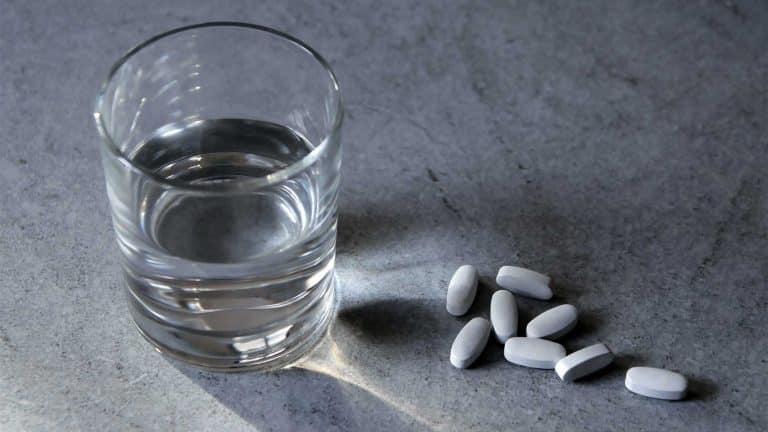Mixing Tramadol & Alcohol | Dangers & Effects
- Effects Of Tramadol & Alcohol
- Dangers Of Mixing Tramadol & Alcohol
- Are Tramadol & Alcohol Addictive?

Tramadol, also known by its brand name Ultram, is a synthetic opioid prescription drug. Opioids should not be mixed with alcohol because they produce similar effects, including slowed breathing and heart rate.
Even moderate drinking while taking tramadol can produce dangerous consequences. When used together, the harmful effects of each substance are enhanced and can cause a life-threatening overdose.
Effects Of Tramadol & Alcohol
Tramadol and alcohol are both central nervous system depressants that slow functions in the brain and body. Although they produce similar effects, these substances work differently in the brain.
Tramadol
As an opioid, tramadol attaches to opioid receptors in the central nervous system (CNS), which helps relieve severe pain. Tramadol is a CNS depressant drug that can slow breathing, heart rate, and blood pressure.
Alcohol
Although alcohol may initially feel energizing, it is also a CNS depressant. Alcohol enhances a neurotransmitter (chemical messenger) in the brain called GABA. This chemical helps reduce anxiety by producing a calming effect.
The following are common side effects of CNS depressants:
- drowsiness
- dizziness
- headache
- dry mouth
- low blood pressure
- impaired coordination
- slowed breathing
- confusion
When you take alcohol and tramadol together, it can increase these effects and have dangerous consequences.
Dangers Of Mixing Tramadol & Alcohol
Mixing tramadol with alcohol increases the risk of severe respiratory problems because both substances slow breathing.
Slowed breathing can limit the amount of oxygen reaching the brain, also known as hypoxia. If the brain is deprived of oxygen for too long, it can result in coma or permanent brain damage.
Tramadol & Alcohol Overdose
The Food And Drug Administration (FDA) warns against taking prescription opioids with other CNS depressants (including alcohol, benzodiazepines, and barbiturates). Mixing these substances can cause respiratory depression and a potentially fatal overdose.
You can overdose on tramadol, alcohol, or both when you combine the two substances.
Signs of tramadol overdose include:
- slowed or stopped breathing
- slowed heart rate
- low blood pressure
- loss of consciousness
- coma
- possible death
When a person overdoses on alcohol, breathing, heart rate, and body temperature slows down significantly.
Signs of alcohol overdose include:
- confusion
- unconsciousness
- vomiting
- seizures
- slowed breathing
- low body temperature
If you recognize signs of alcohol or opioid overdose, seek medical attention immediately.
Mental Health Disorders
Misusing opioids and alcohol can have long-term effects on a person’s mental health. Both tramadol and alcohol can affect brain chemicals responsible for mood.
Although some people drink to cope with symptoms of anxiety or depression, alcohol abuse can worsen symptoms. According to the FDA, people who have a history of depression, take tramadol, and drink excessively are at an increased risk of suicide.
Are Tramadol & Alcohol Addictive?
The Drug Enforcement Administration (DEA) classifies tramadol as a Schedule IV controlled substance in the United States. Controlled substances pose a risk for abuse and dependence.
Although alcohol is not defined by the DEA as a controlled substance, it can cause physical dependence and addiction. When you are physically dependent on one or more substances, you are at risk of developing a substance use disorder (SUD).
Addiction Treatment Options
There are several treatment options if you or a loved one develops a substance use disorder. Treatment programs offer individualized care based on the substances you used, how long you’ve used, and the severity of your addiction.
Treatment options for drug and alcohol addiction may involve:
Detox
Detoxification from alcohol and opioids can be dangerous and may require medical care. In a detox center, healthcare professionals monitor your health around the clock. These facilities offer a safe and comfortable environment to cope with difficult withdrawal symptoms.
Inpatient/Residential Treatment
Learning to live without drugs and alcohol is challenging and may require long-term treatment. Residential programs remove you from people, places, and things you may associate with substance abuse.
In these structured environments, you may have access to behavioral therapy, group therapy, and individual counseling.
12-Step Programs
Participating in a community-based 12-step program can be a beneficial addition to your treatment plan. 12-step groups, like Alcoholics Anonymous (AA), help you connect with peers who share similar experiences.
If you or a loved one is struggling with alcohol or tramadol addiction, please contact us today for more information on treatment.
Written by Ark Behavioral Health Editorial Team
©2024 Ark National Holdings, LLC. | All Rights Reserved.
This page does not provide medical advice.
DailyMed - Tramadol Hydrochloride
Food And Drug Administration (FDA) - FDA Warns About Serious Risks And Death When Combining Opioid Pain Or Cough Medicines With Benzodiazepines
National Institute On Alcohol Abuse And Alcoholism (NIAAA) - Understanding The Dangers Of Alcohol Overdose
National Institute On Drug Abuse (NIDA) - Prescription CNS Depressants DrugFacts
National Library Of Medicine - Risks, Management, and Monitoring of Combination Opioid, Benzodiazepines, and/or Alcohol Use
National Library of Medicine: MedlinePlus - Alcohol

Questions About Treatment?
Ark Behavioral Health offers 100% confidential substance abuse assessment and treatment placement tailored to your individual needs. Achieve long-term recovery.
100% confidential. We respect your privacy.
Prefer Texting?
Our friendly support team is here to chat 24/7. Opt out any time.







 Learn More
Learn More








